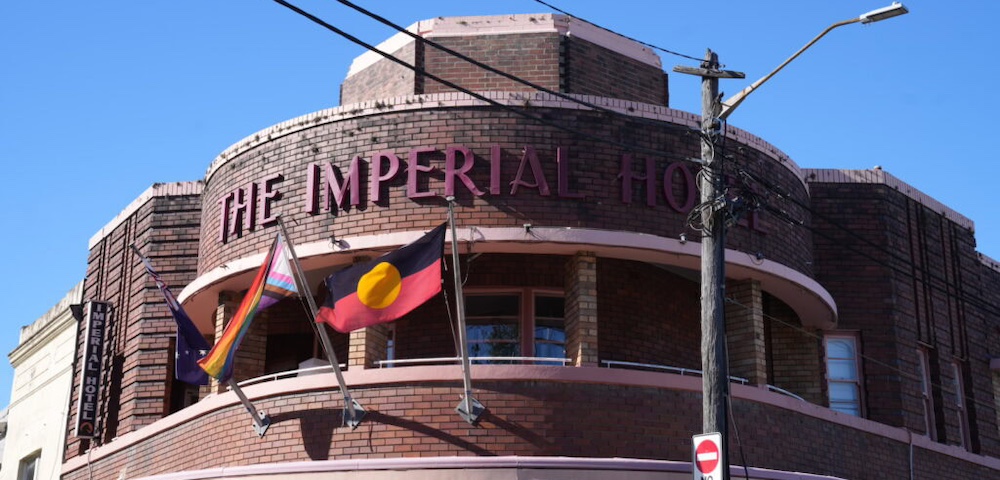
Church in crisis
The American Catholic Church is in crisis following the snowballing of sexual abuse charges levelled at priests in dioceses across America. This week Time magazine carried a cover story: Can the Catholic Church Survive?
Some news reports talk of the church being bankrupted by compensation payouts with estimates that the scandals have already cost the church over one billion dollars. Others have focused on the church’s dwindling moral authority. Some, like Pulitzer Prize-winning New York Times columnist Maureen Dowd, have not withheld their scorn.
The fact that Pope John Paul finally addressed the current American crisis in an Easter letter to priests was simply not good enough for Dowd.
The few sentences about the pedophilia scandal were more sympathetic to the put-upon priests than the mauled victims, she wrote. Pope John Paul II has never addressed all those Catholics whose lives have been badly wounded. The wound he cares about most is the wound to the church.
This Easter saw some 300 protesters in Boston surround the Catholic cathedral demanding Cardinal Bernard Law’s resignation as archbishop over his mishandling of priest sex abuse cases.
Law, you are just as guilty as the priests that DID IT! read one protester’s placard. Reform or be destroyed, read another. Yet another protester poignantly held a sign which simply asked: Why?
The controversy began in January when it was revealed by a Boston Globe report that Fr John Geoghan had abused 130 boys over a period of 30 years. In a pattern now seen throughout the world, the Globe showed how church authorities including Law had turned a blind eye to the extent of the problem, moving Geoghan from appointment to appointment when complaints arose.
Law has faced increasing pressure even from conservative Catholic opinion leaders to resign but has resolutely refused.
The Boston Cardinal is not the only high-profile church leader in the firing line. New York’s Cardinal Egan, widely regarded as America’s senior Catholic cleric, is also under pressure for his handling of priest sex abusers in his previous diocese of Bridgeport, Connecticut.
This for many is the heart of the scandal. It is not so much about the prevalence of sexual abuse in the church -“ it is about the way that it has been consistently covered up by those in authority. Although the current explosion of cases is the most damaging, the church has been dealing with priest sexual abuse cases and consequent cover-ups since the mid-80s.
Even the national Catholic weekly America seems to be gunning for resignations. In a recent editorial, the influential Jesuit magazine said that the fact that no bishop had resigned was astonishing.
If early on some bishops had been willing to take responsibility and resign, victims, parishes, the media and juries might have been less inclined to vent their anger on the church as a whole, the editorial pointed out.
Where the church has failed to act, the state is starting to intervene. In a bold legal move in Florida, former bishop Anthony O’Connell is about to be indicted on racketeering charges usually deployed only against organised crime figures.
His accuser, a former seminarian who forced O’Connell’s resignation as the bishop of Palm Springs in March with accusations that the bishop had molested him as a teenager, alleges that church authorities across three dioceses worked in concert to cover-up O’Connell’s behaviour.
Patrick Noaker, the attorney representing the victim, alleged in the Washington Post that racketeering charges are justified because of a pattern of illegal activity. Bishops maintained secret files concerning priests accused of sexual misconduct and often, he said, priests were sent to other states to make extradition difficult.
What we have is evidence that the Catholic Church has aided in obstructing and hiding this information from law enforcement agencies, Noaker told the Post.
Priest sex abuse has been headline news across America for some three months now and is currently showing no signs of abating as a hot topic of concern. In places as diverse as Pittsburg, Los Angeles, Arizona and Portland, sex abuse charges are pending against priests.
In such a climate it is natural that both the media and the Catholic authorities go looking for scapegoats.
Although the media is often accused of blurring lines between homosexuality and pedophilia, most reporting in the major dailies has been careful to avoid such obvious faults.
However, a range of conservative Catholic figures have used the current scandal to argue against homosexuals practising as priests. The pope’s official spokesman, Joaquin Navarro-Valls, recently argued that homosexual orientation may invalidate ordination.
People with these inclinations just cannot be ordained, he told The New York Times.
But Richard Sipe, a former priest turned therapist who has written several books on priests, sex and celibacy, recently called the attempt to scapegoat gay priests a sexual holocaust.
Blaming gay priests is bullshit, he told the internet magazine Salon. This anti-gay spirit is so unfounded. I call it the -˜sexual holocaust’. The church’s attitude is that if you can find a scapegoat, you can persecute them and then you’ll eliminate the problem. If you got rid of homosexual-oriented priests, that would mean you would eliminate one-third of priests and bishops, he said.
Some Catholic leaders are prepared to admit that the problems in the church are much deeper than either a focus on pedophilia or homosexuality would admit.
It’s not just a question of a few bad apples in the barrel, prominent Notre Dame University theologian Father Richard McBrien told CNN.
It’s a question of the nature of the barrel, and also the process by which we select the apples and put them in and monitor their health, if you will.
However, there are some indications that the controversy is driving a wedge between the hierarchy and the faithful and spotlighting a drift from traditional teachings in the church at large.
A recent poll in the Boston Globe showed that 51 percent of Catholics polled did not agree with the church’s position that homosexuality was morally wrong.
Many commentators have pointed out that it is not the high proportion of gay priests in the church nor the requirement that priests are celibate that is the problem. The problem is that the church’s position on both homosexuality and celibacy encourage a culture of secrecy.
The fact that there seem to be a disproportionately higher number of gays in the priesthood -“ I don’t think it has a direct relevance to the pedophilia problem, David Clohessy of St Louis, national director of the Survivors Network of Those Abused by Priests, told the Boston Globe. The relevance of gay priests is somewhat like the relevance of celibacy in that both contribute to a culture of secrecy and that culture enables abuse to go undetected. But celibacy doesn’t make one molest kids, and neither does one’s sexual orientation.
And although the church can still count on conservative commentators to toe the party line on issues of traditional sexual morality, they are learning that they can no longer count on full support.
Patrick Buchanan, a former Republican presidential candidate, wrote in a recent opinion column that the bishops had failed in their managerial and moral duty and should be sent to monasteries to do penance the rest of their lives.
Even the most loyal of Catholics and their faithful priests must concede there is something rotten in our Church, he wrote.
The Church has been disgraced, and an outraged faithful made to pay hundreds of millions in damages because of bishops who were derelict in their duty to weed child predators out of seminaries and sanctuaries, and turn them over to the police as the serial criminals they were, Buchanan seethed.
What is clear is that the church in America will be radically changed by its current traumas. Some believe for the better. Others wonder.
Change is coming. It’s coming from you. It’s coming from the grass roots, Barbara Blaine, the Chicago-based founder of Survivors Network of Those Abused by Priests, a support group with about 3,500 members, told the dissidents gathered in protest outside the Boston cathedral this Easter.
However, one unnamed Catholic priest in a Newsweek report compared the authoritarian culture of the church to that of Muslim extremists and suggested it was an institution incapable of change.
As a group, they’re like the Taliban, he said. If you want to succeed in this system, you never talk about the ordination of women -“ and abortion and birth control are like the third rail. It’s all coming home to roost. They’re not capable of dealing in a more diverse community.
The scandal has highlighted the schism between the left and the right in the church. It has brought to the fore again fundamental disagreements over issues like abortion, homosexuality, divorce, priestly celibacy and women’s ordination.
Eugene Kennedy, a psychologist and former priest, and author of The Unhealed Wound: The Church And Human Sexuality, told The New York Times that conservative Catholics operate out of a mistaken model which emphasises a division of body and soul.
The church uses sexuality to control people in a punitive atmosphere. If flesh is evil, you cannot teach celibacy in a healthy way, he said.
Mary Ann Glendon, a conservative Harvard law professor who serves on two Vatican commissions, was equally forthright.
These cases are the detritus of the sexual revolution, she said, calling for a return to discipline within the priesthood and the wider church.
Ultimately, everyone agrees that the church must indeed change or simply become irrelevant.
If the church does not respond vigorously to this scandal, then the authority the hierarchy has to teach morally will vanish, Scott Appleby, director of the Cushwa Center for the Study of American Catholicism at Notre Dame University, told the Times. There will be no moral credibility for the bishops to speak about justice, truth, racial equality, war or immigration if they can’t get their own house in order.
It won’t just be a crisis, it will be all over but the shouting, he said.








